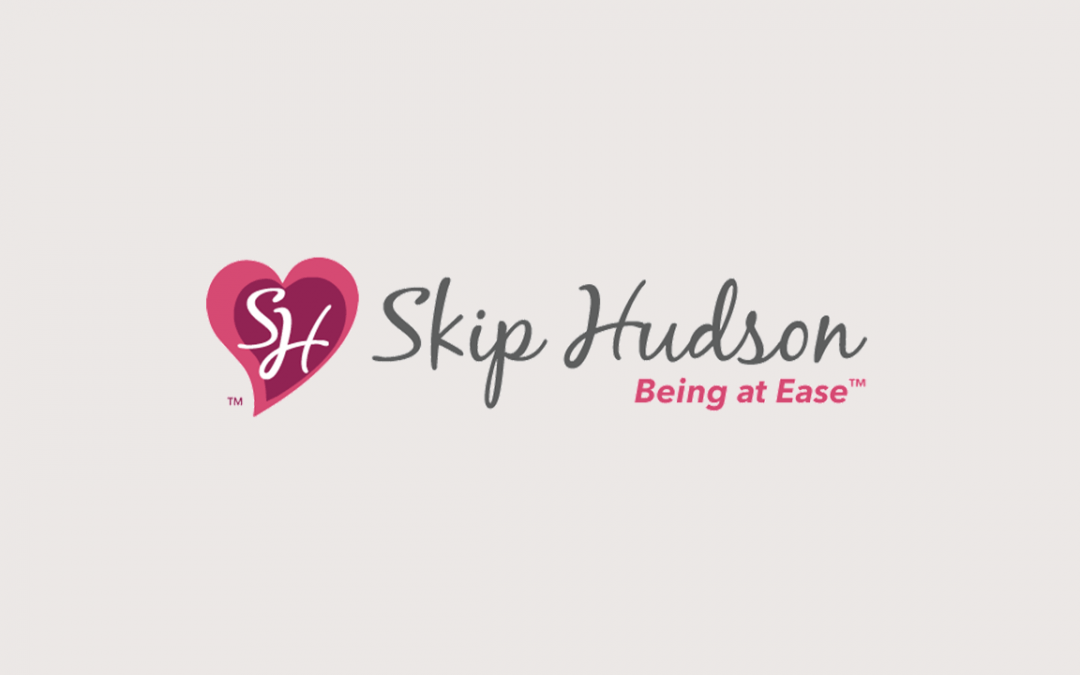Skip Hudson slides a small, wrapped package across the table just out of reach of a potential client. “I have this gift,” he begins, and then pauses for effect. “And I’m offering you a chance to give this gift to your company. The problem is, you’re not going to want this gift.” Skip then quickly takes the package back, and concludes: “I’ve seen it a thousand times, and I know, you’re going to reject this gift. You’ve been trained and programmed to think this gift is not good. In fact, you’ll likely think it’s bad.”
The gift Skip— founder and CEO of Skip Hudson, LLC— is offering to business leaders, companies, and individuals alike is the gift of self-compassion, simply translated into the practice of remembering how to love yourself again.
At a time of record high behavioral and mental health concerns, why would anyone turn down an opportunity to learn the tools to be more self-compassionate?
Skip knows the answer to this question all too well: “What do we call people who focus on themselves in this culture?” he asks rhetorically. The most common answer he encounters: “Selfish, self-centered, elitist, and no one wants to be that person.”
Skip explains: “Self-compassion is different from self-care. Self-care tactics are designed to fail. We know anecdotally if they worked there wouldn’t be huge sections of self-help books constantly evolving with new content. The self-improvement approach is based on the assumption you’re broken or something is wrong with you. It’s centered around the idea of helping you fix your flaws.”
Skip’s approach in his 8-week mindfulness course titled Emotional Resilience Training based on a Self-Compassion is designed with a different approach, one that’s not focused on changing who you are, but rather accepting who you are and remembering how to love yourself again in spite of your flaws and imperfection. He guides people to do their own work, and provides perspectives and tools so each student can be in their present moment experience without judgment.
Skip explains why self-compassion is more important than ever: “Perfection is the standard in western culture. Even in the face of knowing perfection isn’t possible, most people set perfection as the bar for themselves and hold themselves to that impossible standard.”
Albeit over-simplified in this text, Skip teaches people to treat themselves well—not better, not worse than they would treat others they love. He teaches them to give the same grace to themselves as they would to someone they love by practicing a self-compassion mantra when they do fail or make a mistake. He calls it the “phrase that pays,” which is this—“I may not be perfect but parts of me are awesome.”
This phrase brings about a state of mindfulness, which goes back to the idea of being with your present moment experience without judgment. Skip explains the importance of awareness sans judgment: “Judging is resistance and that’s where failure comes in self-improvement programs. If you silence your inner critic, instead of acknowledging and dealing with it, it won’t work because you’re resisting and pretending it’s not there. Rather, be mindful that you aren’t perfect, but parts of you are awesome so you can embrace self-compassion.” Skip’s educational courses demonstrate how mindfulness and self-compassion lead to resilience.
Resilience is the ability to get back up and try again in the face of adversity and defeat, and Skip understands more often than not, the adversity people experience is made worse because of their own negative self-talk.
The practice of self-compassion is just as important in our personal lives as it is in corporate culture, and Skip’s programs are not only designed to help individuals, but also to be used and applied in workplace settings.
A recent business study by McKinsey & Company shows that companies are increasingly focused on the development of social, emotional, and advanced cognitive skills in employees. This includes managing others, adaptability, interpersonal skills, and empathy. There are a limited number of corporate training sessions that focus on social and emotional skills, but Skip’s course on emotional resilience fills this gap.
“What happens when a coworker asks you to take on an extra project and you know you can’t and have to say ‘no’ to them?” Skip asks. “Do you feel guilt for letting them down? For not being a team player? Conversely, what would have happened if you would have said ‘yes’ knowing you wouldn’t be able to deliver?”
Skip’s thoughtful questions quickly translate self-compassion in a workplace setting, and the tools he teaches help teams work through guilt, improve resilience, and even increase employee engagement and satisfaction. He also teaches tools to deal with stress called transition practices, which are purposeful pauses throughout the day proven to reduce cumulative stress.
“The tools I teach are simple. It’s just remembering to do them when you need them,” reflects Skip.
Skip’s mission of guiding people and organizations to be at ease is instilled in the work he does, and his 8-week class on Emotional Resilience Training based on a Self-Compassion is just one of many. To learn more about Skip’s courses, check out his class offerings here. Connect with him online at www.SkipHudson.com or by email at [email protected].

